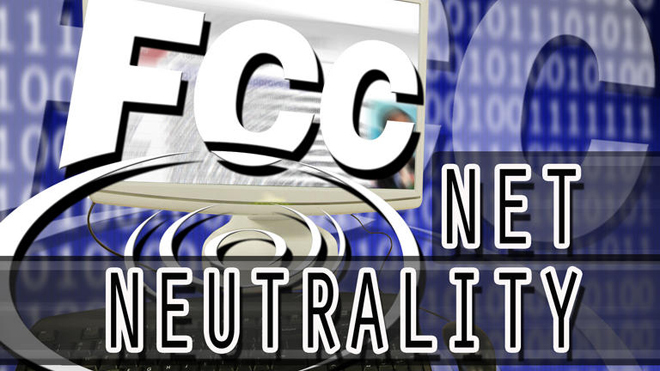In a victory for the future of the Internet and for property rights, last month the Circuit Court of Appeals for the District of Columbia overturned — we should all hope permanently — the heart of the Federal Communication Commission’s so-called “Net Neutrality” rules.
Net Neutrality, as with so many leftist proposals, is Orwellian in name: it represents little more than the theft of property rights of companies that have invested billions of dollars in Internet infrastructure.
It is “neutral” in the sense that the regulations would force providers of Internet bandwidth to treat all content providers the same way. That is no more reasonable than saying that a stadium can’t sell better seats for higher prices or limit access to the Club level or tell you that you can’t bring in your own beer. It is “neutral” in the same way that Chairman Mao was “neutral” about private property.
The FCC had passed three rules relating to disclosure, “anti-blocking,” and “anti-discrimination” on the ‘Net. The court invalidated the last two, while permitting the disclosure rule that requires broadband providers to “publicly disclose accurate information regarding the network management practices, performance, and commercial terms of [their] broadband Internet access services.”
While the majority (two of the panel’s three judges) accepted the FCC’s claims of broad authority to regulate the Internet — an important part of the unfortunate precedent continued by the case — the court nonetheless unanimously ruled that the FCC could not prevent providers of Internet bandwidth from blocking content running through their “pipes,” such as access to certain websites or access by certain devices, or from charging different content providers different amounts, such as for bandwidth-intensive applications like video streaming.
Supporters of Net Neutrality worry that the result of the court’s ruling will be that broadband providers like Comcast or Verizon, which own other businesses that may compete with certain websites, may block out the competition.
For example, if one of those companies bought an online payment service, would they try to block PayPal? Or would they give their own streaming movies advantages over Netflix or Amazon or Hulu? Or might a broadband company that can provide cable TV service try to block Internet access to a box owned by DirecTV? But, especially in the world of wireless Internet, competition will undoubtedly rein in the worst impulses of some of the companies that Americans love to hate.
Tuesday’s ruling was narrow and legalistic: The FCC’s rules were struck down because they treat Internet providers like “common carriers” (an old designation that relates to everything from telephone companies to ferries) even though the FCC is expressly prohibited from regulating Internet companies as common carriers.
The judges were kinder to the FCC than they should have been in accepting so much of the Commission’s broader justification for rule-making: “The Commission… has reasonably interpreted section 706 to empower it to promulgate rules governing broadband providers’ treatment of Internet traffic, and its justification for the specific rules at issue here — that they will preserve and facilitate the ‘virtuous circle’ of innovation that has driven the explosive growth of the Internet — is reasonable and supported by substantial evidence.”
The proper response — and perhaps explaining why I’m not a lawyer — is “Bull****!”
The reason the Internet is one of the most successful achievements in human history is that it’s been almost entirely unregulated (other than attempting to prevent already illegal acts like dealing drugs or distributing child pornography, etc.) The idea that anything the FCC would do is likely to increase innovation is ridiculous on its face.
Furthermore, telling Internet infrastructure (“backbone” or broadband) providers, who’ve spent billions of dollars of shareholders’ money building the physical structure of the Internet, how they must charge for the use of their assets is nothing more and nothing less than the theft of property. It’s as if someone builds a toll road only to have regulators say they must charge a big 18-wheeler, which does much more damage to the road than a car does, the same toll that the car pays. It is naked theft. It is destructive to the incentive to build more such roads. And you can bet the truck lobby would be for it.
In a partial dissent, Judge Laurence Silberman goes further in the right direction, questioning much of the FCC’s authority to regulate the Internet (and his colleagues’ acceptance of the FCC’s claims):
So much for the terms “promote competition in the local telecommunications market” or “remove barriers to infrastructure investment.” Presto, we have a new statute granting the FCC virtually unlimited power to regulate the Internet. This reading of § 706, as we said in Comcast Corp. v. FCC , “would virtually free the Commission from its congressional tether.” The limiting principles the majority relies on are illusory.
Silberman is pointing us to a reason why our constitutional republic, our freedom, and our national self-reliant character is crumbling: Too many legislators, judges, and citizens are erroneously and unwisely accepting the ongoing encroachment of the regulatory state into aspects of our lives where they are not permitted, wanted, or helpful — except from the point of view of left-wingers and rent-seekers who push to use the power of government to effectively steal billions of dollars from unloved (and thus not politically easy to defend) corporations like Verizon and Comcast.
Google and other Internet companies that lobbied for Net Neutrality should be ashamed. They got big, successful, and fabulously wealthy due to the “wild west” nature of the Web. But now that they’re riding high they want to use the power of government to cement their advantages. I wonder how Google would feel if the government told them they could not charge different amounts for different advertisements, or Netflix that they couldn’t charge differently for different movies, TV shows, or their own original content… or that they must supply HBO’s original content at the same price as their own.
The companies have argued that they “have based decisions to embark on significant investments precisely upon the premise of non-discriminatory access to content.”
But imagine a high-end car company trying to use the government to tell gas stations that they must sell premium for the price of regular. Imagine Godiva getting a regulator to say that they must be sold the world’s best cocoa beans for the same price that Hershey’s pays for whatever quality they buy. It cannot be said strongly or often enough: any such approach, including Net Neutrality, is immoral, impractical, and in almost any other context illegal. Claiming that they have made business decisions based on an assumption of immoral and illegal government regulation is preposterous, but all too believable in 21st-century America.
The former FCC Chairman who pushed so hard for these rules, Julius Genachowski, is a very smart guy. He is also a partisan political hack who worked for Chuck Schumer and was a classmate of Barack Obama’s at Harvard Law School. In creating the now-dead rules, he was doing the bidding of President Obama’s big donors at Google while sucking up to George Soros-funded leftist organizations.
Genachowski’s replacement, Tom Wheeler, who now must decide whether to appeal Tuesday’s ruling, is a successful communications sector venture capitalist. Unfortunately, he is described byPolitico as “a longtime Obama loyalist… (who) raised hundreds of thousands of dollars for Obama’s two presidential campaigns.”
So don’t look for the politicization of regulation under this administration to miss a step under new FCC leadership.
With Net Neutrality dead for the time being, I expect renewed focus by the partisan Wheeler on a new version of the “Fairness Doctrine” in which the FCC will work to weaken conservative dominance over talk radio and cable TV news. As of December, Fox News had more viewers than MSNBC, CNN, and HLN combined, while talk radio continues to see stations leaving the Progressive Talk format entirely. Democrats are furious.
Despite officially jettisoning Fairness Doctrine rules in 2011, a more recent makeover of this ugly mindset threatens to tell media organizations what, or at least what kind, of news stories they must cover and how they must cover them in order to “illuminate the diversity of views available.” Republicans are already calling early “studies” preparation for “Fairness Doctrine 2.0.“
Tuesday’s victory, although in an important battle, must be seen in the context of a never-ending war against a patient and determined enemy.
[First published at the American Spectator.]




